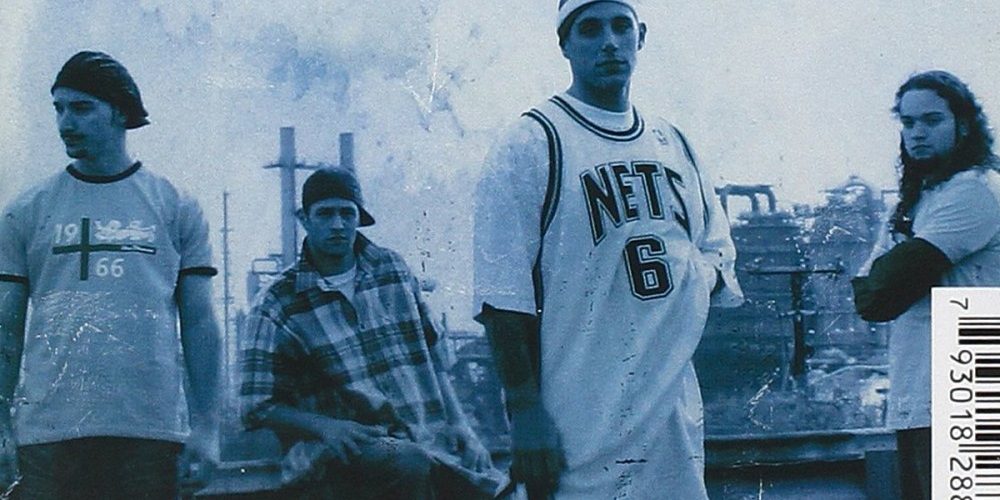E.Town Concrete vocalist severs ties with AI rapper FN Meka following backlash
Less than a week ago, AI rapper FN Meka became the world's first AI rapper to sign to a major label when he inked a deal with Capitol Records, but controversy quickly arose surrounding Meka using the N word, making light of police brutality, and releasing a song with Gunna, who, to quote activist group Industry Blackout, "is currently incarcerated for rapping the same type of lyrics this robot mimics." Just days after the signing, Capitol dropped FN Meka and "[offered their] deepest apologies to the Black community for [their] insensitivity in signing this project without asking enough questions about equity and the creative process behind it." Kyle the Hooligan, who voiced FN Meka, then broke his silence, saying that he was "ghosted" by the creators of FN Meka. "Use my voice, use my sound, use the culture and literally just left me high and dry," he said. "I ain’t get a dime off of nothing […] So, I’m glad they ass got canceled."
Throughout all of this, it was revealed that one of the people behind FN Meka was none other than E.Town Concrete vocalist Anthony Martini (who's also had a long history working in artist management) and his new "virtual label" Factory New, which he started with Brandon Le. Martini recently told the New York Times that he anticipated Capitol dropping FN Meka due to "blogs that have latched onto a clickbait headline and created this narrative," and argued that Meka was "not this malicious plan of white executives." Now, Martini is distancing himself from FN Meka. In a statement posted by Billboard, he said that he did not create FN Meka, and said that he "should have done more diligence before joining" the team. Here's his statement in full:
After much consideration, I have decided to sever ties with FN Meka and Factory New effective immediately.
I joined the team in early 2020 because I am truly passionate about the future of digital media and felt my background could help fulfill Meka’s potential in the music industry. It’s become apparent that I should have done more diligence before joining. In the past few days, I’ve learned of Kyle The Hooligan’s experience with Meka which is deeply at odds with my core values. I believe that artists must always be at the center of the creative process and must be compensated fairly.
I debated making a statement at all, but felt there is some basic info that should be available to clarify the record: I did not create FN Meka, nor did I ever claim to. I discovered Meka online almost a year after “Moonwalkin” and “Internet” were released on Soundcloud and after the police brutality Instagram post was already made. I joined the team in early 2020 and was named co-founder with my specific focus being business development and artist management. I take responsibility for diving into a project without comprehensively examining its history.
As a manager, my role has always been to create opportunities while the artists on our team lead creative. I’ll always defer to the talent when it comes to how they choose to express themselves and will back them in their vision. I can’t speak for what happened before me, but while I was involved, artists on the project were always compensated fairly and participated in the revenue from their work.
I also take full responsibility for the lack of transparency and confusion that my comments about “A.I.” elements in Meka’s music may have caused. Those quotes were from a 2021 interview and were meant to create intrigue and provide cover for songs at the time which weren’t ready for scrutiny. FN Meka’s vocals have always been written and performed by humans, which in this case, have been black voices – to be clear.
There are many lessons to be learned from this experience and I believe we have opened important conversations about entertainment in the digital age, the music industry, the metaverse, and what art in general looks like in the future.
Too many artists never realize their dreams because of the labels put on them by society. The music industry is full of talented singers, rappers and producers who never get a shot because a corporation doesn’t think they have “right look” or are “too old” or not “marketable enough”. Whether it’s prejudices they face or simply the artist not feeling comfortable with the body they were born in, virtual characters have the potential to be a true equalizer and the next frontier in representation in the arts.
That is how virtual avatars can and should enable MORE artists to have a platform, not fewer. Throughout my career, whether as an artist manager, a label head, or an executive, I’ve been consistent in my mission to empower creatives and provide alternatives to unscrupulous norms in the music business. I will continue to do that.
Stay tuned for any further updates.
